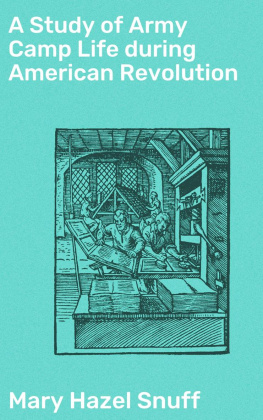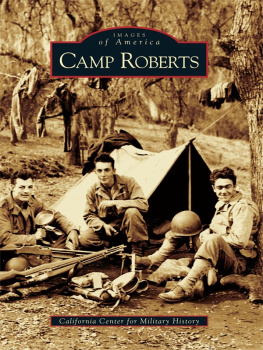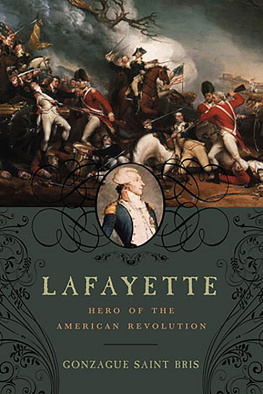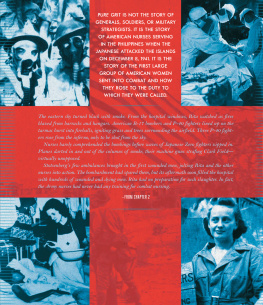INTRODUCTION
Table of Contents
The object of this study is to produce a picture of the private soldier of the American Revolution as he lived, ate, was punished, played, and worshiped in the army camp. Drawing that picture not only from the standpoint of the continental congress, the body which made the rules and regulations for governing the army, or from the officer's view point as they issued orders from headquarters rather just a study of the soldier himself in the camp conditions and his reaction to them. It was easy for congress to determine the rations or for the commander-in-chief to issue orders about housing conditions and sanitation, but the opportunities for obeying those orders were not always the best. It is just that fact, not what was intended, but what happened, that is to be discussed.
The soldier in camp is an aspect of the Revolutionary War which has been taken up only in a very general way by writers of that period of history, except perhaps the conditions at Valley Forge, for at least their terrible side is quite generally known. Charles Knowles Bolton has studied the private soldier under Washington, but has emphasized other phases of the soldier's life than those taken up in this study.
The material has been gathered mostly from letters, journals, orderly books, and diaries of the officers and privates, written while in camp. The difficulty confronted has been to get the diaries of the private soldier. They have either not been published or if they have been published they have been edited in such a way as to make them useless for a study of social conditions in camp, the emphasis having been placed on the military operations and tactics rather than the every day incidents in the soldier's life.
The soldier has been studied after he went into camp. Little has been said about the conditions which led to the war or the conditions as they were before the struggle began except as they are used to explain existing facts. It has been the plan in most of the chapters to give a brief resume of the plans made by congress or the commander-in-chief for the working out of that particular part of the organization, then to describe the conditions as they really were.
There has been no attempt made, for it would be an almost impossible task, to give a picture of the life in all the camps but rather the more representative phases have been described or conditions in general have been discussed.
The first phase of camp life considered is that of the housing conditions, the difficulties encountered, the description of the huts, the method of construction, and the furnishing. This is followed in the second chapter with a study of the food and clothing, the supply and scarcity of those necessities. The third chapter will have to do with the health and sanitation of the soldier while encamped, the hospital system, the number sick, the diseases most prevalent and the means of prevention. The soldier's leisure time will be the subject of the fourth chapter, the sort of recreation he had been in the habit of at home and the ways he found of amusing himself in camp conditions. The soldier's religion forms the subject matter of the fifth chapter, the influence of the minister before the war, his place in the army, the religious exercises in camp and their effect upon the individual and the war in general. The last chapter will in a way be a recapitulation of all that has gone before by drawing a picture of a day with a soldier in camp emphasizing the discipline and duties of camp life.
Bolton, The Private Soldier Under Washington.
Chapter I
HOUSING CONDITIONS
Table of Contents
The war was on, the Lexington and Concord fray was over, Paul Revere had made his memorable ride, and the young patriots with enthusiasm at white heat were swarming from village and countryside leaving their work and homes. Where they were going they did not know, they were going to fight with little thought of where they were to live or what they were to eat and wear. There was a continental congress but it had little authority and the fact was that very few members of that mushroom growth army even felt that they were fighting for a confederation for in their minds they were for the various states, and it was to the various states they looked for support and it was to those states that the honors were to go. It was not until the day before the battle of Bunker Hill that congress had appointed a commander-in-chief and it was almost a month later when Washington took command in Boston. There was an army of sixteen thousand men mostly from the New England States strengthened by about three thousand from the more southern states during the next month. It was more nearly a mob than an army. There was no directing force, no one to superintend the building of barracks, no one to distribute food or to take charge of the supplies.
The Provincial Congress of Massachusetts on hearing of Washington's appointment ordered on June 26, 1775 "the President's (of the college) house in Cambridge, excepting one room, reserved for the President for his own use, be taken, cleared, prepared, and furnished for the reception of General Washington and General Lee"
Such were the headquarters of the first camp of the Revolution but the story of the privates' quarters is quite a different thing. The troops were not quartered at one place, they were scattered about the surrounding territory some at Roxbury, some at Winter Hill, others at Prospect Hill and Sewall's Farm and at various small towns along the coast..
When tents were used for shelter at Cambridge or at other places it was very seldom that any thing more than "Mother Earth" served as floors and sometimes that was so wet and miry that the soldiers during the rainy seasons were forced to raise the ground with "Rushes, Barks, and Flags in the dry" and at other times the tents were taken down during the day for the ground to dry and then put up again at night.
It would be difficult to get any where more frank reactions to housing conditions than those which were given by Dr. Waldo in a poem written while in camp describing the general conditions but particularly the tents and huts. The part quoted below describes a stormy day and the hardships endured when the army was encamped in tents.
"Though huts in Winter shelter give,
Yet the thin tents in which we live,
Through a long summer's hard campaign,
Are slender coverts from the rain,
And oft no friendly barn is nigh
Or friendlier house to keep us dry.
* * * * *
Move tents and baggage to some height,
And on wet cloths, wet blankets lie
Till welcome sunshine makes them dry.
Others despising storm and rain
Still in the flat and vale remain,
There sleep in water muck and mire,
Or drizzling stand before a fire
Composed of stately piles of wood,
Yet oft extinguished with the flood."
As the weather grew colder and the men were still in tents it was the practice to build chimneys
The tents were supposed to house about six men and no more than fourteen tents were allowed to a company of about seventy two..
The furnishings of the tents were very meagre, one person even remarking that they were greatly favored in having a supply of straw for beds. The straw was placed on the ground and five or six soldiers would crowd together on it hoping to keep warm which added a little to the comfort.












